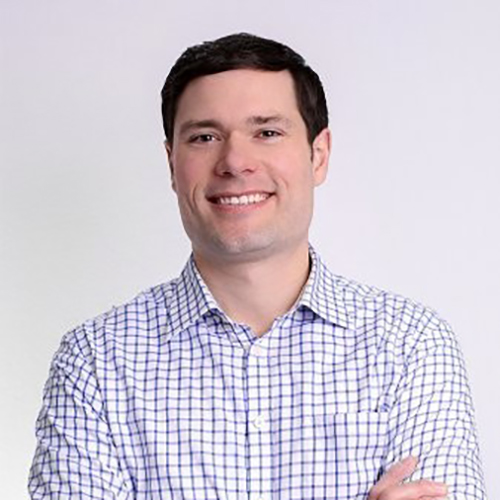The Startup Studio at the Zell Lurie Institute is comprised of three programs intended to advance students and alumni entrepreneurs to the next level. The combination of these innovative programs enables entrepreneurs to quickly achieve their goal of launching and scaling their venture. To date, Startup Studio has helped over forty ventures get off the ground.
“The goal of Startup Studio is to help entrepreneurs who have already done the work to research their customers, identify competitors, and think about their business model, either in other ZLI programs or on their own, and now they’re really ready to implement and build their businesses”, says Rashmi Menon, Entrepreneur-in-Residence and head of the Startup Studio program at the Zell Lurie Institute.
The Customer Acquisition Program (CAP) is designed to help teams accelerate and optimize their sales efforts to grow their customer base and potential revenue drivers. This 12-week program introduces new customer acquisition strategies each week. Participants then implement these techniques, receiving feedback and support along the way.
The Zell Lab for Technologies (ZLT) is designed for more established tech startups who have already developed and launched their product. The program pairs student/alumni startups with UI/UX design interns to redesign and test their products. The aim of the program is to provide U-M founders with early market feedback through building prototypes of websites, mobile applications, and software to be used for user testing, beta programs, and more.
The Minimal Viable Product (MVP) program supports non-technical students and alumni in building minimally viable products for their tech startups. This program takes founders through the process of creating wireframes/prototypes using no code tools and assists in sourcing and selecting software developers to bring it to life.
Below we interview University of Michigan Ross School of Business Alumnus, William Crane (MBA ‘14) about his experience participating in Startup Studio.
First off, tell us a little about your entrepreneurial journey and your newest venture, OrbAid.
My passion and work have focused at the intersection of sustainability and business. I have been fortunate to have had a front row seat to the real world struggles company leaders face trying to do good in business while not harming the planet working at and advising companies like Berkshire Hathaway, Chrysler (now Stellantis) and Kellogg’s (now Kellanova).
At OrbAid our mission is to empower company teams to accelerate greener bottom lines. Our software pinpoints practical sustainability projects that allow companies to make more green being green, like reducing product cardboard packaging thickness which reduces landfill waste and lowers costs. Much like Netflix provides you with ever more tailored content the more you watch, our software creates and recommends ever more tailored new project ideas the more users interact with our software.

What many consider “early startup innovation magic” can be learned through experiential learning. Building great products that solve real pains requires critical upfront product development work that is part art and part process.


You’ve participated in two Startup Studio programs, the first one was the Minimal Viable Product (MVP) program. Tell us about your experience in that program and how it impacted the launch of your venture.
When we started the Minimal Viable Product (MVP) program we had an idea, by the end we had a functional wireframe that allowed us to compress our MVP software launch. In my experience, it is this upfront work, which is part art and part process, that can only be experienced to be fully learned. The net result is that we were able to accelerate our software launch by 6 months which allowed us to land several fortune 100 pilots customers that further accelerated our impact and growth.
After launching OrbAid, you participated in Zell Lab for Technologies (ZLT). How did this experience help you scale your business?
Climate change is a massive business challenge, filled with complex environmental science and new jargon. Part of our aim has been to make sustainability more approachable and simpler so teams can take quicker action and realize quicker rewards. Post launch of our MVP software, Zell Lab for Technologies (ZLT) helped us gather and distill valuable customer feedback into software improvements that further accelerate customer training, as well as time to green profits.
Overall, what was your biggest takeaway from your time in Startup Studio?
This is a hard one, I learned a lot in a short period of time. What many consider “early startup innovation magic” can be learned through experiential learning. Building great products that solve real pains requires critical upfront product development work that is part art and part process.
Lastly, what is your advice for fellow entrepreneurs looking to get their ventures off the ground?
Seek out mentors. No matter our background, experiences, or age we can all learn. Creating a product and scaling a venture is making thousands of decisions as effectively and efficiently as possible. Although the pain you are solving might be unique, many of the problems you will inevitably face have been solved by entrepreneurs before you; seek them out. Your success rate goes up dramatically the more stakeholders you have invested in your mission.
Thank you so much, William!
